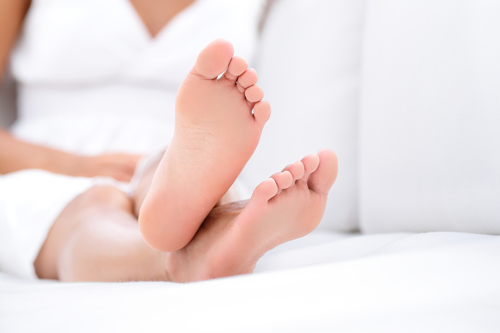
Who is at Risk for Falling?
Falls happen to everyone, but falling has become a particular concern for senior citizens. According to the Center for Disease Control (CDC), one of three adults over the age of 65 will fall every year. In fact, the CDC reports that in 2013, over 25,000 senior citizens died from unintentional fall injuries. With so much at stake, it’s important to understand your risk.
You can determine whether or not you are a fall risk by answering a couple simple questions:
- Have you fallen in the past?
- Do you have arthritis in your feet or ankles?
- Do your legs or ankles feel weak or unsteady?
- Do you drag your feet, stumble or shuffle when walking?
- Do you find it necessary to grasp stationary objects, like walls / furniture / rails, to gain balance when walking?
If you answered “YES” to any of these questions, we recommend you speak to your podiatrist about your options. He or she will likely perform a fall-risk assessment to confirm the diagnosis and to determine a treatment plan.
What is a Fall Risk Assessment?
Fall risk assessment tools have been developed over time in order to better understand why falls occur so they can be prevented in the future. Since half of all fall victims are likely to suffer another fall within a calendar year, fall risk assessments are crucial. There are a number of different fall risk assessments available, but the most widely used is known as a “Morse Fall Risk Assessment.”
The Morse Fall Scale is used to assess the risk of a patient fall based on a variety of safety indicators, including history of falling, secondary diagnoses, ambulatory aid along with measuring your gait and mental status. Podiatrists and other care providers tally the score (based on the number of Yes or No responses). Scores falling from 0-24 indicate no risk, 25-50 indicate low risk and higher than 50 indicate high risk. This resource also comes with a list of considerations to prevent patient falls.
These assessments aren’t just given after a fall. They can (and should) be used as a preventive measure. In fact, studies have found that of the one out of three adults over the age of 65 who has fallen in last calendar year, less than half actually tell their healthcare provider. Considering falls are the leading cause of injuries for older adults, a fall risk assessment early in life could keep you on your feet for years to come.
What Causes Falls?
Falls are usually caused by a combination of intrinsic and extrinsic factors. Intrinsic factors are often related to age, impaired movement, and some medical conditions. The most common of these include:
- Muscle Weakness
- Gait Deficits
- Balance Deficits
- Arthritis
- Postural Sway
- Brain or Mood Disorders
- Urinary Incontinence
Extrinsic factors, on the other hand, are related to personal choices and improper use of assistive devices. Other intrinsic risk factors include:
- Wearing improper footwear
- Poor footing
- Medications
- Being overweight or out of shape
How Can a Podiatrist Help Prevent Falls?
Because the main causes of falls involve factors such as muscle weakness, arthritis, and gait/balance deficits, podiatrists have an important role to in play in reducing and preventing falls. This is accomplished by creating a fall risk management treatment plan.
Your provider will start by assessing and treating foot pain, identifying and correcting underlying biomechanical abnormalities, introducing exercise programs and issuing foot health and footwear advice. In most cases, a typical treatment plan will include the following:
- Initial Fall Risk Assessment
- Assistive Devices (Ankle Foot Orthosis, custom orthotics, etc.)
- Strength and Balance Training
- Patient Education
Ankle-foot orthoses (AFOs) are among the most commonly prescribed lower limb orthoses. They are custom made for each individual to encompass the foot, ankle and leg, finishing just below the knee. Made from high temperature thermoplastic, AFOs are prescribed to combat a variety of factors, like muscle weakness and joint instability.
Don’t live in fear of falling! Call today and ask about our elderly fall prevention services. If you or a loved one has experienced a fall, contact us today to schedule a consultation!